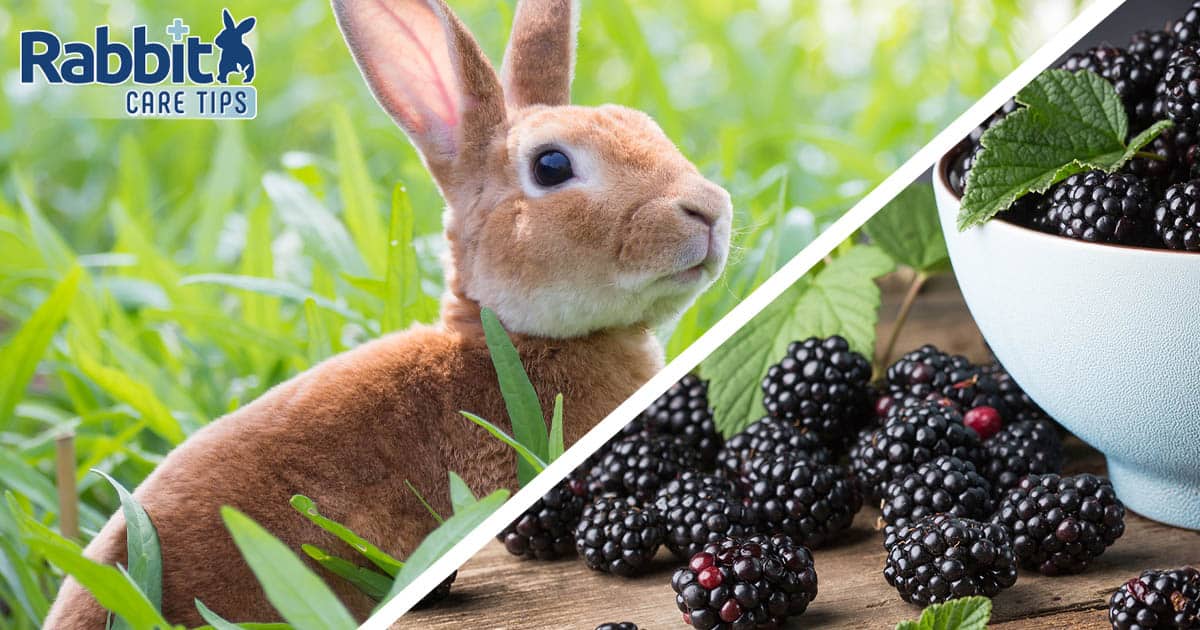Blackberries are a delicious and nutritious fruit that can be enjoyed by humans and animals alike. But can rabbits eat blackberries? The answer is yes, but with some important considerations.
This guide will provide you with all the information you need to know about feeding blackberries to your rabbit, including their nutritional value, potential benefits and risks, and how to feed them safely.
Benefits of Blackberries for Rabbits
Blackberries offer several health benefits for rabbits, contributing to their overall well-being and vitality.
Blackberries are a rich source of vitamins and minerals, including vitamin C, vitamin K, and potassium. These nutrients play crucial roles in supporting a healthy immune system, promoting strong bones and teeth, and maintaining a balanced electrolyte profile.
Improved Digestion
The high fiber content in blackberries aids in digestive health. Fiber helps regulate bowel movements, preventing constipation and promoting a healthy digestive tract.
Antioxidant Properties
Blackberries contain antioxidants, such as anthocyanins and ellagic acid. These antioxidants protect cells from damage caused by free radicals, reducing the risk of chronic diseases.
Weight Management
Blackberries are low in calories and high in fiber, making them a suitable treat for rabbits looking to maintain a healthy weight.
Potential Risks of Blackberries for Rabbits
While blackberries can offer nutritional benefits to rabbits, excessive consumption can pose certain risks. Rabbits have sensitive digestive systems, and an overabundance of blackberries can disrupt their digestive balance.
Digestive Issues
Blackberries contain high levels of sugar and fiber. While these components are beneficial in moderation, excessive intake can lead to gastrointestinal problems such as diarrhea, bloating, and gas. Diarrhea, in particular, can cause dehydration and electrolyte imbalances, which can be serious for rabbits.
Urinary Tract Issues
Blackberries are also high in oxalates, which can bind with calcium in the urine and form crystals. These crystals can accumulate in the urinary tract, leading to conditions such as urinary stones or sludge. In severe cases, urinary stones can obstruct the urinary tract, causing pain and discomfort for rabbits.
Weight Gain
Blackberries are relatively high in calories and sugar. If rabbits consume excessive amounts, they may gain weight rapidly, leading to obesity. Obesity can put strain on a rabbit’s joints and internal organs, increasing the risk of health problems.Therefore, it is crucial to feed blackberries to rabbits in moderation and as an occasional treat.
Overfeeding can lead to digestive issues, urinary tract problems, and weight gain, compromising their overall well-being.
Guidelines for Feeding Blackberries to Rabbits
To ensure the safety and well-being of your rabbit, follow these guidelines when feeding blackberries:
Portion Size and Frequency
Start by offering a small amount of blackberry, no more than a teaspoon, and observe your rabbit’s reaction. Gradually increase the portion size if your rabbit tolerates it well. Limit blackberry treats to once or twice a week to avoid digestive issues.
Preparation
Wash blackberries thoroughly before feeding them to your rabbit to remove any pesticides or dirt. Cut the blackberries into smaller pieces to make them easier for your rabbit to eat.
Supervision
Always supervise your rabbit while it is eating blackberries. This allows you to monitor its consumption and ensure it does not overindulge.
Avoidance of Seeds
Blackberry seeds can be difficult for rabbits to digest. Remove as many seeds as possible before feeding blackberries to your rabbit.
Alternative Treats for Rabbits

While blackberries can be a healthy treat for rabbits, it’s important to offer a variety of treats to ensure a balanced diet. Here are some alternative healthy treats that you can offer your rabbit:
- Fresh Herbs: Herbs like basil, cilantro, parsley, and mint are rich in vitamins, minerals, and antioxidants.
- Leafy Greens: Dandelion greens, romaine lettuce, and kale are excellent sources of fiber and other nutrients.
- Fruits: Apples, bananas, and blueberries are all healthy treats that rabbits enjoy in moderation.
- Vegetables: Carrots, celery, and bell peppers are crunchy treats that provide vitamins and minerals.
- Treats: Commercial rabbit treats are available in various forms, such as pellets, sticks, and chews. Choose treats that are low in sugar and high in fiber.
Last Point
In conclusion, blackberries can be a healthy and enjoyable treat for rabbits when fed in moderation. By following the guidelines in this guide, you can help your rabbit enjoy the benefits of this delicious fruit without any adverse effects.
Frequently Asked Questions
How often can I feed my rabbit blackberries?
Rabbits should be fed blackberries no more than once or twice a week.
What are some other healthy treats I can give my rabbit?
Other healthy treats for rabbits include carrots, celery, apples, and bananas.
What are the signs of blackberry toxicity in rabbits?
Signs of blackberry toxicity in rabbits include diarrhea, vomiting, and lethargy.